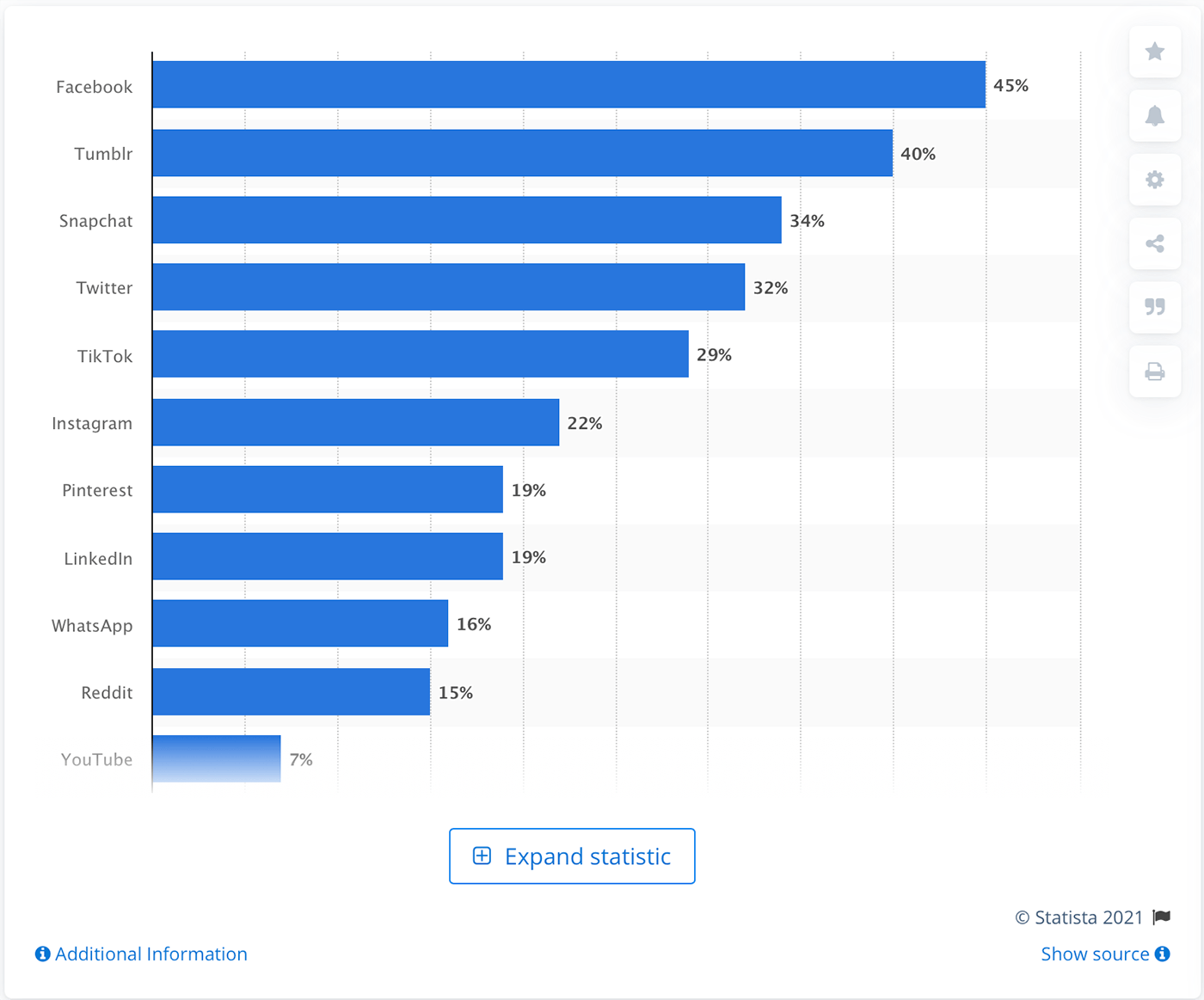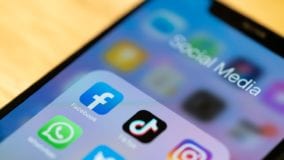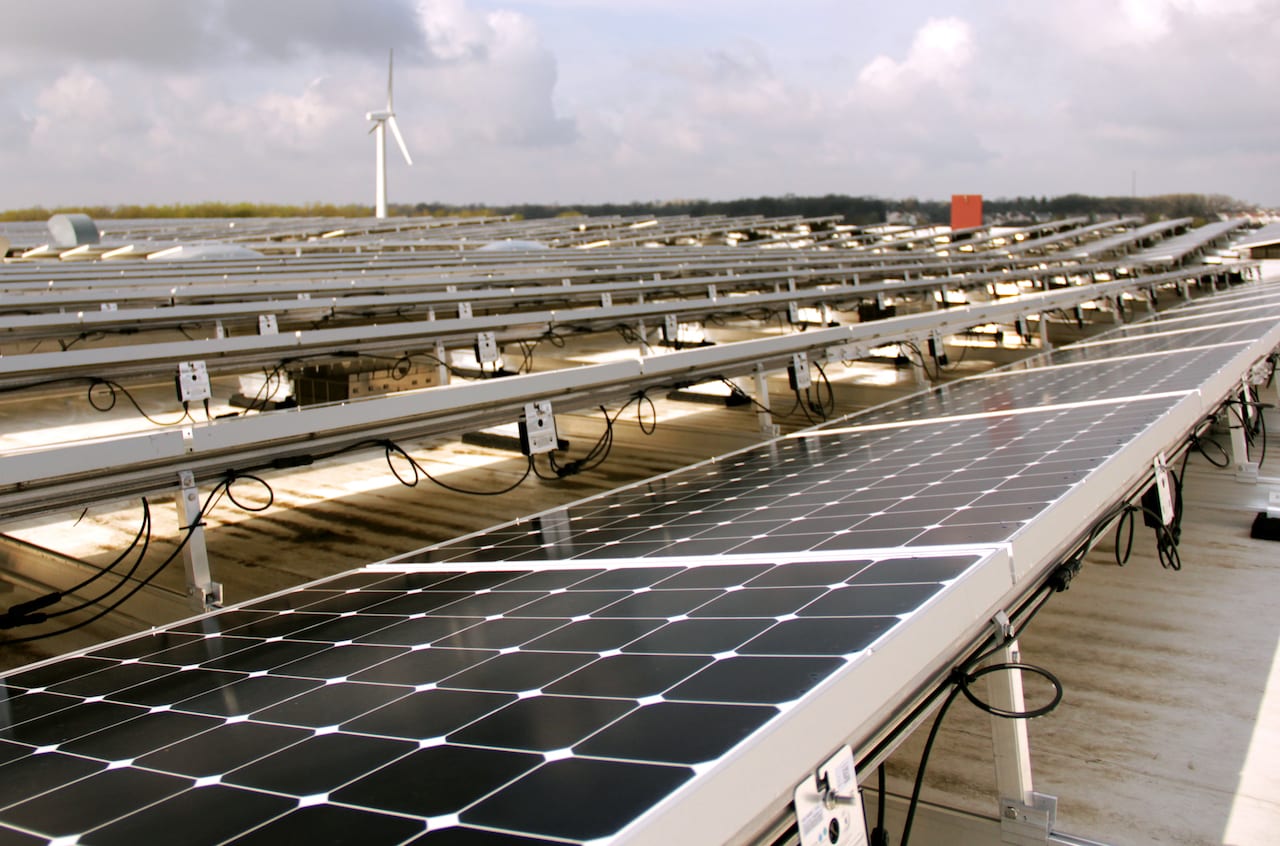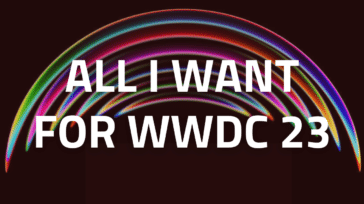It’s hard to go on social media these days without seeing a bunch of posts about quitting social media. The concept of logging off for good was a pipe dream for most during the lockdown, as social media was one of the only channels people could use to stay connected. Judging by the content of people’s posts, however, social media use during the pandemic was more out of necessity than desire.
At this point, most of the population is at least halfway vaccinated. Consumers can finally resume the activities that were put on pause during the lockdown, and people are visiting with friends and family that they haven’t seen for over a year.
Does this mean people finally delete their social media accounts? Could COVID-induced social media fatigue lead to a boost in people leaving social media for good? Let’s take a look.
The Social Media Boom of 2020
We gravitated to social media during the lockdown. Recode reports that TikTok visits grew by nearly 600 percent in 2020, but that’s not all: Instagram traffic was up by 43 percent, Twitter jumped by 36 percent, even Facebook grew by 3 percent.
But it wasn’t just the platforms themselves that saw increased traffic. Isolated platform users reached out to their favorite brands and online personalities to see how they were coping with the turn of events. Just a week after lockdown orders were released, Instagram saw a 100 percent growth in influencer interactions as consumers reached out for one of the only forms of human interaction available at that time.
Many people also turned to social media as their news source during the catastrophe. In fact, Pew found that 34 percent of US adults regularly get their news from social media. The accuracy of that information, however, is up for debate.
“Doomscrolling” Leads to Fatigue
Did you hear people use the phrase “doomscrolling” during the lockdown? The use of the term reached new heights during the pandemic. It refers to the act of endlessly consuming depressing information online – resulting in stress, reduced productivity, and increased anxiety. Brandwatch tracked 62,000 mentions about quitting doomscrolling for mental health, which for those of us without ample self-control, also means leaving the offending social media platforms entirely.
As social media users became more aware of the impacts of negative information overload, more people gravitated towards abstaining (or intending to abstain) from social media use. The science journal Technological Forecasting and Social Change found that lockdown-induced social media fatigue was leading many Gen Z-ers to delete their social media accounts, or just suspend them for a period of time.
We saw a spike in social media users becoming illusioned with the quality of information available on social media platforms. They began to place blame on social media account providers for the misinformation. Deloitte reports that, after the 2020 U.S. Presidential election, 44 percent of respondents felt that social media account providers should have done more to monitor and eradicate misinformation. In addition, even though many people get their news from social media, 67 percent don’t actually trust the news they see on those platforms.
Is Deleting Social Media the Answer?
The pandemic brought about fatigue around using specific social media apps. An October 2020 survey by Brandwatch found that mentions of social media fatigue (being bored, tired, or exhausted with it) increased 41 percent in 10 months during the outbreak, as compared with the 10 months prior to that.
Talk of deleting social media accounts spiked in January, as did a steady stream of articles interviewing people who did just that. The Guardian interviewed people who quit social media to report improved concentration, better sleep, improved mental health, and better effectiveness at work and school. Quite the persuasive argument for those facing information overload from a variety of sources.
Statista found that 45 percent of Facebook users, 34 percent of Snapchat users, 32 percent of Twitter users, and 22 percent of Instagram users had considered leaving the platform.

As the gig and remote work economy continues to grow, however, leaving social media presents a risk to those who use their online presence as a funnel for clients. More social media users will attempt to spend less time on the platforms as their opportunities to go out and live life resume. But most will continue to use social media as a networking tool or as a lifeline if we face a pandemic of this intensity again.

















I’ve deleted all social media accounts including Facebook and Linkedin. I’m much happier and relaxed. I recommend that all my patients do the same. It’s a zero cost antidepressant therapy.
Gary L Wade, MD
Good for you – I hope your patients take heed and do the same.
If you haven’t seen it, a documentary called “The Social Dilemma” on Netflix is quite good in that it exposes the ugly realities of social media by interviews with various ex-executives and coders from the major social media companies – some of whom said they don’t allow their own kids to use it (that in itself says a lot, right?).
I’ll check it out. Thanks!
Nice points, Jasmine. I’m enjoying your writing here.
A couple of thoughts come to mind.
I think in the past 4-5 years, we’ve come to realize how unreliable so much “news” on social media is. Disinformation quite possibly tipped a national election, and it has probably contributed to Covid deaths due to people thinking they don’t need to practice safe behavior or get vaccinated. Yes, our FaceBook pages, regardless of your political persuasion, all have algorithms that combine with fairly natural human behavior as to make them echo chambers. That’s a problem.
The other issue is privacy. It’s unclear who the originator of the phrase is, but it absolutely rings true. If something is free, that means YOU are the product. Apple does (currently) sell data to make money. Insane levels of secrecy in Apple’s corporate culture, have led to that applying to privacy for its consumers as well. Facebook, Instagram, NextDoor, Google and more, absolutely need to sell the data they gather on us. The data that will willingly give to them every time we log in. I think the new privacy features Apple is rolling out for iOS are very a step in the right direction.
It is suggested that people under 40 may not care about their privacy in the same way us older characters do. I’m not sure that is written in stone and will always be true. Many a teen and twentysomething has already seen the devastating effects of their inappropriate party pics on FaceBook or Instagram. I suspect, or at least “hope,” we’re all growing wiser in that regard. The jury is still out on that one.
The last issue is the main one I’ve battled as a writer. Social media is a rabbit hole that’s easy to fall down into and give up too much time and creativity without noticing how far you fell. 25 years ago, first-person video gaming on the Mac was that addiction for me. It’s why I just can’t go there anymore. One is not creating anything, really. We’re likely all just killing time with activities like video gaming and social media posting.
It’s a personal choice, of course, but addiction and doomscrolling aside, I’m not sure we all need to instantly delete our social media profiles. We might need to delete parts of them, but what if we treated them like the signs we were willing to put in our front yard? If we learn to dial up our privacy protections and just share the more personal and intimate parts of our lives in locked down, private groups and platforms like MeWe, they might be worth hanging onto.
Thanks again for your ponderings on this.
Ah, terrible typo! The below should have said does “not”
Apple does (currently) sell data to make money…
[sigh]
Social media has been the most corrosive force on modern society – by feeding a user what the algorithm decides that user will want to see to continue watching, it constantly narrows every user’s perspective. Not a new issue – I read some time back about this in a book that described how if three people Googled “Black Panther”, one might get the big African cat, another the football team, and the third the Chicago terrorist group (based on their previous searches “for their convenience”). But the problem is each assumes the others see the same thing they do – and that’s where the problem starts.
In the old days, when people read a newspaper they knew all their neighbors read (or at least could read) the same articles and opinions, etc. The sad fact that far too many get their news from social media has led to the extreme polarization we see today in the west. The fact that the tech elites have decided Brave New World was a prediction and thus have decided to quash entries with which they disagree only makes it more toxic – just see what the CCP did in China and where it has led there.
So, less social media = better society.